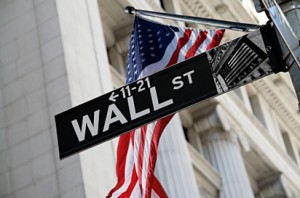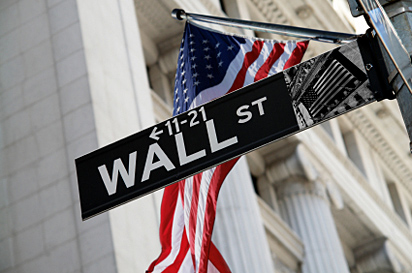 By Jeff Gelles, The Philadelphia Inquirer –
By Jeff Gelles, The Philadelphia Inquirer –
PHILADELPHIA — U.S. Rep. Barney Frank, a lead sponsor of 2010’s Dodd-Frank financial overhaul, joined with U.S. Senate candidate Elizabeth Warren on Thursday morning to call for tighter regulation of large banks’ trading risks and warn that the finance industry continues to push for weaker rules and enforcement even after JPMorgan Chase’s disclosure of an embarrassing, multibillion-dollar loss from derivatives trading.
Both Massachusetts Democrats were key players in efforts to re-impose stronger regulatory oversight in the aftermath of the housing bubble, financial crisis, and Great Recession. Warren headed a congressional oversight panel named to oversee the $700 billion financial bailout approved by Congress in fall 2008, and she pushed for creation of the new Consumer Financial Protection Bureau in Dodd-Frank.
U.S. Sen. Scott Brown, the Massachusetts Republican that Warren is seeking to unseat, also played a key role. After his special-election victory in January 2010 restored Senate Republicans’ ability to block legislation, Brown broke with most of his party to back the final version of Dodd-Frank. But he did so only after insisting that the sponsors drop a $20 billion annual charge on large banks designed to cover the costs if any failed in the future and needed to be dismantled — a decision Frank sharply criticized in the telephone news conference Thursday.
Warren said the need for “smart rules” and a level playing field was highlighted once again by JPMorgan Chase’s acknowledgment — most recently in congressional testimony by CEO Jamie Dimon — that it had lost $2 billion on positions staked out by traders in its London offices. Some estimates put potential losses at $3 billion or more.
In testimony to House and Senate committees, Dimon said the losses occurred in a “synthetic credit portfolio” — a variety of the complex financial instruments called derivatives — managed by a London unit the bank calls its chief investment office. Dimon said the CIO was primarily responsible for managing a $350 billion portfolio of the bank’s excess assets “in a conservative manner.”
In written testimony, Dimon said the intent of JPMorgan Chase’s synthetic-credit positions “was to protect — or ‘hedge’ — the company against a systemic event, like the financial crisis or eurozone situation.” But he called part of the bank’s strategy “poorly conceived and vetted” and said, “In hindsight, CIO’s traders did not have the requisite understanding of the risks they took.”
Still, Dimon downplayed the losses against the scale of the bank’s assets and profits.
“We will not make light of these losses, but they should be put into perspective. We will lose some of our shareholders’ money, and for that, we feel terrible. But no client, customer or taxpayer money was affected by the incident,” Dimon said.
Warren said Dimon’s remarks, coupled with his resistance to tighter curbs on banks’ proprietary trades and overseas activities, were evidence that “Wall Street doesn’t get it. Hey, $3 billion in losses? Hey, it’s no big deal. Let’s just keep gambling, and keep on with our high-risk trades and no rules.”
She cited a Bloomberg editorial in which the business-news service calculated that JPMorgan Chase receives an “implicit government subsidy” worth about $14 billion a year,” equivalent to about three-fourths of the bank’s profits over the last year.
Bloomberg based the estimate on research at the International Monetary Fund about the effects of predictable government bailouts of banks whose mistakes could threaten systemic financial damage, often called “too big to fail.”
“Bloomberg certainly isn’t an anti-Wall Street organization, but even they call it corporate welfare,” Warren said. One result of the subsidy, which a 2009 study said lowered large banks’ borrowing costs by 0.8 percentage points, was to put smaller banks at a competitive disadvantage, she said.
Frank and Warren both said it was crucial for U.S. regulators to implement a strong version of the Volcker Rule, a bar on banks’ proprietary trading named for former Federal Reserve chairman Paul Volcker, who urged its adoption.
The rule has been delayed by lawsuits and lobbying from financial institutions seeking to limit its effect. Dimon told the House committee that he didn’t know “if the Volcker Rule could have or would have stopped” the trading that caused JPMorgan Chase’s losses.
Warren said the finance industry and congressional Republicans have continued to try to weaken and defund financial regulators.
“There needs to be an end to back-door attempts to undermine Wall Street reform,” she said.









